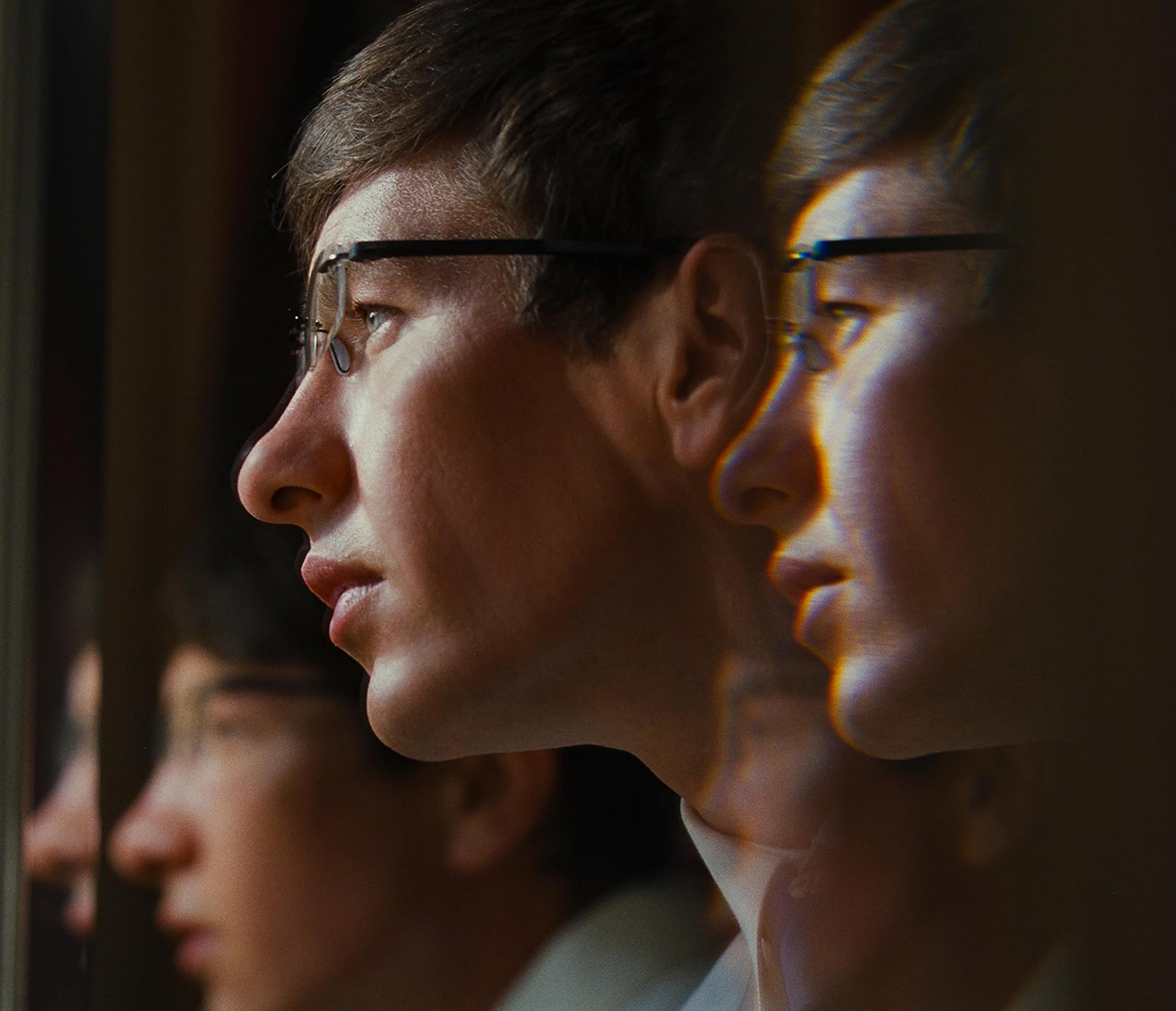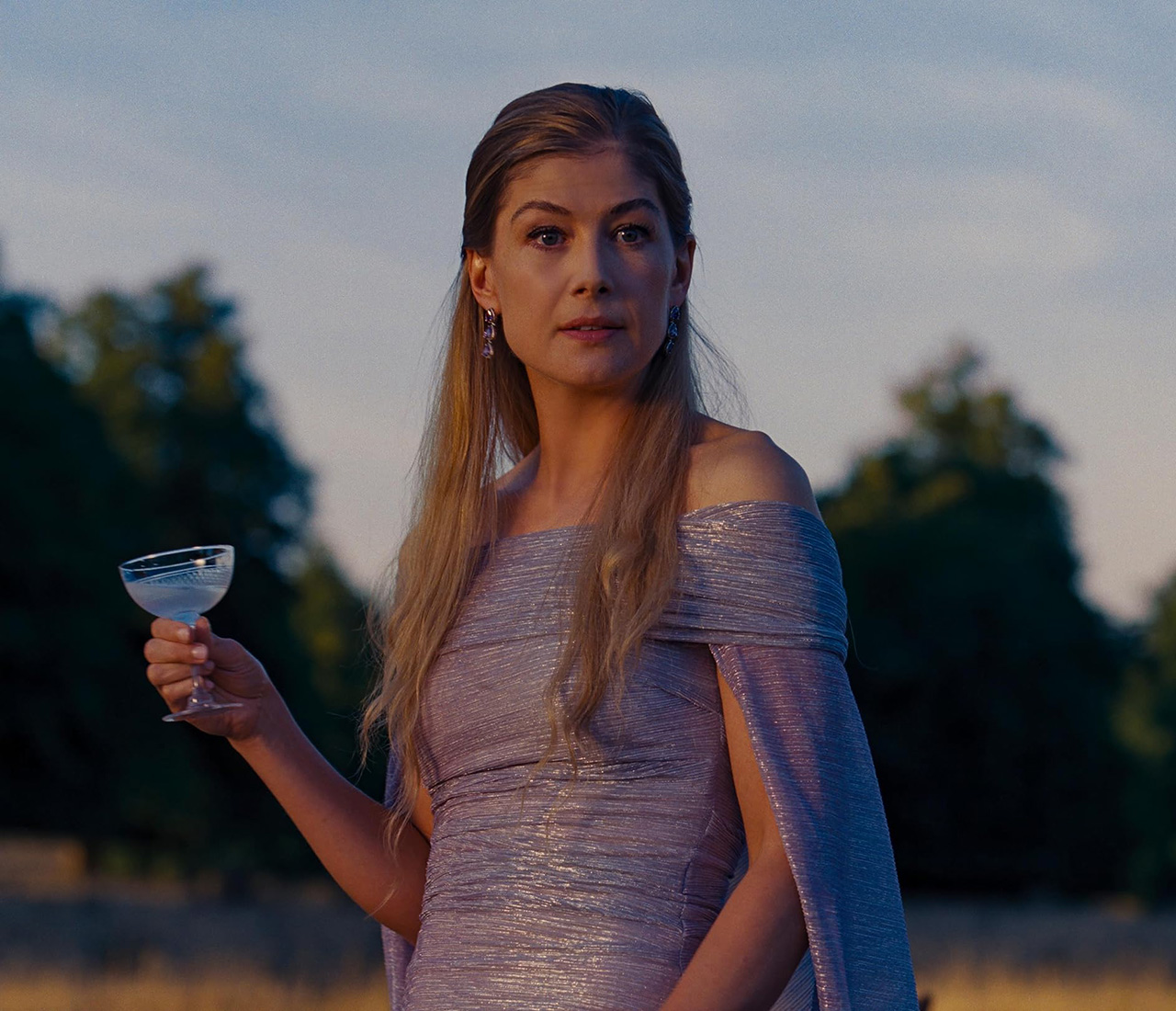Everything

While it’s yet to reach Barbenheimer levels of discourse, Emerald Fennell’s new film Saltburn has definitely touched a nerve in the collective psyche who’ve seen it. But why?
At first, I didn’t think I liked Saltburn. There I said it. Starring Jacob Elordi, Barry Keoghan and a flawless Rosamund Pike, upon leaving the Australian premier at SXSW it felt like the narrative was too familiar. Too Talented Mr Ripley. Too Brideshead. Too Wuthering Heights, even, without giving too much away.
But then I found that I couldn’t stop talking about it either. Like Keoghan’s Oliver did with the Catton family, Saltburn crept in through the cracks of my awareness and dug its neon hooks in with a vengeance.
Was it the nostalgia? The fashion, which has spawned column inches dissecting how accurate it was, is at that right proximity of distance and closeness to perhaps still even live in the wardrobes of anyone in who grew up in this decade. The memory of popped collars and polo shirts still itches the back of my neck just as much as the prospect of the eyebrow ring revival makes my eye twitch. Don’t do it, trust me. No matter how hot you think Elordi looks with it.
MY LETTERBOXD REVIEW OF SALTBURN WAS READ TO EMERALD FENNELL?????????????? pic.twitter.com/N1fdYvZenv
— Zoë Rose Bryant (@ZoeRoseBryant) October 24, 2023
Perhaps it was the mannerisms. During one of the MANY debates had with friends and even those who hadn’t even seen the movie yet – sorry for the spoilers – a recurring point was the way the movie discussed the British class system and the underlying coldness of English civility. Pike’s unerringly perfect manners armed with zero filter was one of the film’s highlights.
Rather than falling prey to familiar tropes, the plot’s biggest twist is at the heart of this theme. The battle lines that divide the haves from the have nots are shifted in Fennell’s universe.

But then I began to realise it was the decade itself that was really creating this feeling of almost morbid fascination. In 2006, Esquire actually wrote an article that described Saddam Hussein as “best dressed defendant” on a list of that year’s most stylish men. They also described Jennifer Aniston as “Best Accessory”. This was peak MySpace, pre-Facebook when American Apparel was setting the new sleaze agenda with its questionable advertising as Gnarles Barkley’s “Crazy” was one of the biggest ear worm on the airwaves. Although if someone put asked Alexa to play it in my house today I’d revoke every future invitation that they might have.

This level of apathy in the face decadence and the indulgent irony of the early 00s is something that, today, would crumble in the face of cancel culture. As much of it should. Calling a woman an accessory and a terrorist well-dressed is the kind of trolling now reserved for internet’s dullesr edgelords. Little do they realise, this was once how we bantered.
Saltburn isn’t perfect, mind you. Not like Promising Young Woman which was airtight in its narrative and pacing. And it struggles with how it treats its queer characters: reliably judgmental, bitchy or sinister and not to be trusted. Or a combination of all three.
But it is as secretly addictive as sugar. And if you have a sweet tooth – for Elordi or for an era – it does satisfy.